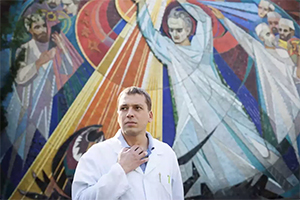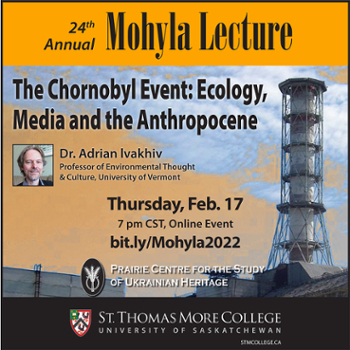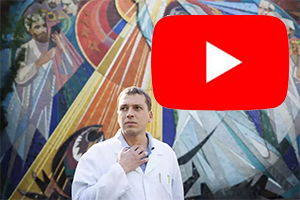
Mohyla Lecture links Chornobyl nuclear catastrophe to current crisis in Ukraine
Dr. Adrian Ivakhiv says accident still having impact on world events
By Paul Sinkewicz
The 24th annual Mohyla Lecture, presented by the Prairie Centre for the Study of Ukrainian Heritage, took place via Zoom on Thursday, Feb. 17, 2022.
The lecture featured Dr. Adrian Ivakhiv, Professor of Environmental Thought & Culture, from the University of Vermont, who spoke on The Chornobyl Event: Ecology, Media and the Anthropocene.
It has been nearly 36 years since the world’s worst nuclear accident, which took place April 26, 1986, when a safety test went awry, causing an explosion in one of the reactors that spread extremely radioactive fallout and has been blamed for thousands of subsequent deaths and illnesses.
Today, the plant, the nearby towns of Pripyat and Chornobyl, and the surrounding land, make up a 2,600-square-kilometer "exclusion zone," which is restricted to nearly everyone except for scientists and government officials.
Dr. Ivakhiv is in the process of completing a book centered around seven stories in and around Chornobyl. His Moyhla talk connected the events of 1986 with subsequent changes in the world, including major changes within the former Soviet Union, influences on the evolution of modern Russian and Ukraine, and even the current crisis evolving as Russian troops look to change the map of Europe.
He argued that changes needed by society, such as dealing with the climate crisis, are often precipitated by ‘hyper-events,’ like Chornobyl, that reshape the possibilities for perception and action.
The full lecture can be seen HERE on YouTube.

